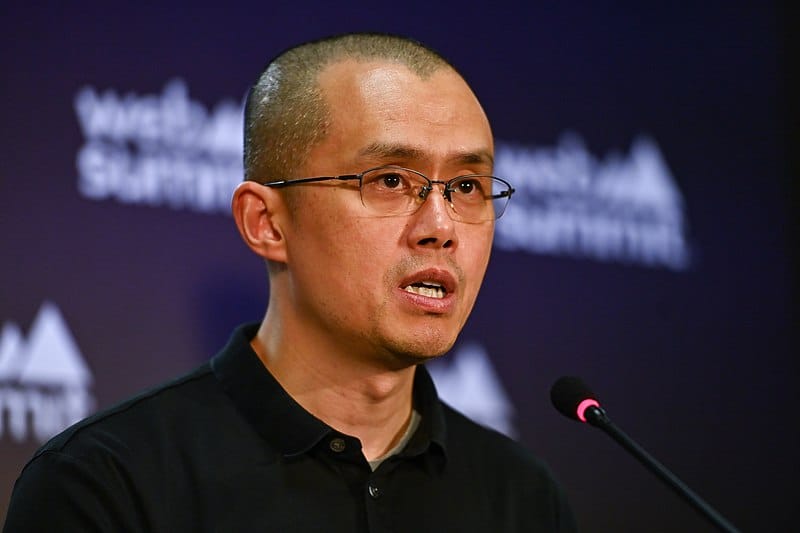On Tuesday, April 30, Changpeng “CZ” Zhao will face sentencing before a federal court in Seattle, Washington.
Zhao founded Binance, the largest cryptocurrency exchange in the world, leading it as CEO until the Department of Justice brought charges against the exchange and Zhao in November for Bank Secrecy Act failures.
Particularly in its early days, the exchange and its leader had a reputation for publicly thumbing their noses at regulators. Zhao was famous for keeping Binance constantly in motion, theoretically out of the range of US law. But the lawsuits against Binance have undercut the validity of the exchange’s claims that US affiliates are truly firewalled from the main exchange. The exchange paid over $4 billion, and Zhao, $50 million in fines.
Zhao also pleaded guilty to failure to maintain an effective anti-money laundering program, in violation of the Bank Secrecy Act. The maximum sentence is 10 years.
The Stakes and the Bets
The prosecution has, however, asked for a three-year jail sentence, setting the upper limit. Meanwhile, the defense argues that probation is more than enough.
Read more: Binance’s CZ Apologizes for ‘Poor Decisions’ as DOJ Pushes for 3 Year Prison Term
“I would say maybe 18 months in prison, maybe two years, worst case,” says Justin Paperny, a former broker who did 18 months in prison for fraud himself and now advises white-collar criminals facing jail time.
Paperny emphasized that, as a non-US citizen, Zhao is ineligible for minimum-security camps and would be facing time inside a low-security prison. “It is not as they say, Club Fed, or a country club like Martha Stewart or Elizabeth Holmes endured,” says Paperny. The camps are fairly open environments, from which prisoners can routinely leave on assigned duties. The low-security prisons may allow freedom to walk the yard but Paperny says they are actual prisons, with walls and cells.
The most likely venue for Zhao would be Federal Detention Center, SeaTac, near Seattle, according to Paperny.
“I don’t think he’ll get the full three years, but I would be shocked if he only got probation,” says Rohan Grey, an assistant professor at Willamette Law College.
Read more: Binance Cofounder Changpeng Zhao Teases New Educational Project Ahead of Sentencing
It remains up to the court to determine the terms of Zhao’s probation, which would either be his main sentence or served after his jail time, including whether he will be able to go back to living outside the US during it, says Paperny. A judge in Manhattan allowed BitMex founder Arthur Hayes, who pleaded guilty to violating the BSA, to serve his one year of probation outside the US.
SBF’s Example
Even at the maximum that the prosecutors are requesting, Zhao’s case pales to Sam Bankman-Fried’s recent 25-year sentence. There is a reason for that.
“This is not fraud, right? This is not like you can find a little old granny who got fleeced,” says Grey. “It’s not as sympathetic a criminal pretext from a PR standpoint.”
Zhao’s prosecution does, however, send a message.
“With Sam Bankman-Fried, they wanted a scalp on a plate. All these Democrats were embarrassed, all these elites who told him how great he was were embarrassed,” says Grey. “What [CZ’s case] is about is showing that we can catch you, we can shut you down, and we can make you cry uncle.” Paperny noted that Zhao’s punishment still seems on track to be greater than most recent white-collar prosecutions, especially for BSA violations, for which almost nobody at major financial firms faces individual prosecutions, much less any punishment worse than probation and fines.
“The government wants to regulate crypto and let bad actors know that the government watchdogs are watching,” he said. “Because it’s crypto and it’s new, they want to set examples of what’s going to happen.”
Why Prosecutors May Not Seek to Bar Zhao From Returning to Binance
“It’s showing everybody that [regulators] can go after even the biggest fish in crypto, even the guy that says you can’t stop me, we can stop you,” says Grey.
Grey in particular noted that the prosecutors have yet to try to bar Zhao from finance — or even returning to Binance after the recommended three years of prison. This might be a plan to get maximum insight into the crypto ecosystem from inside the biggest exchange. That’s because Zhao will be on probation following any jail time, forcing him to be responsive to the law enforcement he spent years avoiding.
“Having him back at the helm is not actually the worst thing, because you’ve tagged him and bagged him and released him back into the wild with a transmitter chip in his neck,” Grey says.
The terms of the existing settlement with Binance have already opened the exchange up to some of the most extensive ongoing regulatory probing in the crypto sphere. Those include an obligation to respond to authorities’ requests for information at will, as well as an independent monitor placed within and paid by Binance who reports to the government.



